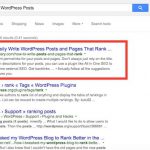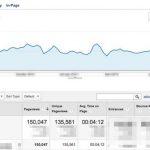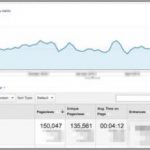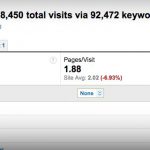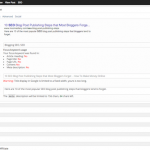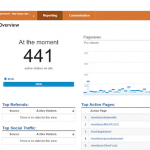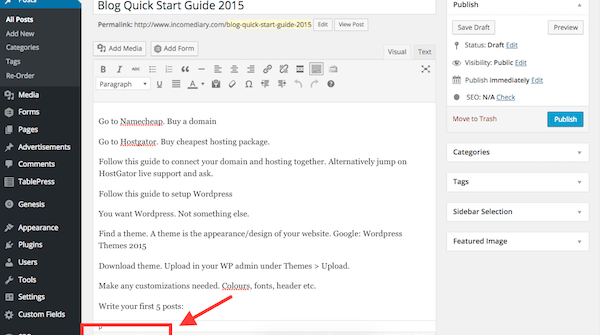
You feel like you’re doing everything right, yet, you’ve never cracked 1,000 uniques per month and only a few of your posts are getting search traffic.
If every one of your posts isn’t getting anywhere from a few to a couple thousand search visits per month, then you’re doing something wrong.
Here are nine reasons why you’re not getting as much search engine traffic as you deserve.
1. Your Site Isn’t Indexed
If your site isn’t indexed, they can’t send you traffic. So, how do you get indexed?
Google (and other search engines) will index your site automatically, but here are a few steps to speed up the process:
- Create an XML sitemap with the Google XML Sitemaps plugin.
- Submit your sitemap to Google through Google Webmaster Tools.
As your site becomes more popular, Google’s spiders will visit more frequently and index your content more rapidly.
2. You’re Not Writing Something that People are Searching For
The first step in writing a blog post is figuring out what people want to know about. Ignoring this step is like starting a business without researching what people want to buy.
If you want search traffic, you need to conduct keyword research. I know I’ve said this before here and here, but being honest with yourself, how often do you actually do it?
It’s your job to create content around the keywords that people are actually searching. To help you figure out which words they search, use the Google Keyword Tool.
3. You’re Not Creating Keyword-Focused Posts
Along the same lines, once you know exactly which keywords that people use, you need to create content specifically for those keywords.
During your keyword research, create a list of keywords that are relevant to your audience and that are searched more than 500 times per month. Then write one blog post for every keyword.
If you need help coming up with good headlines, portent has a free tool to help.
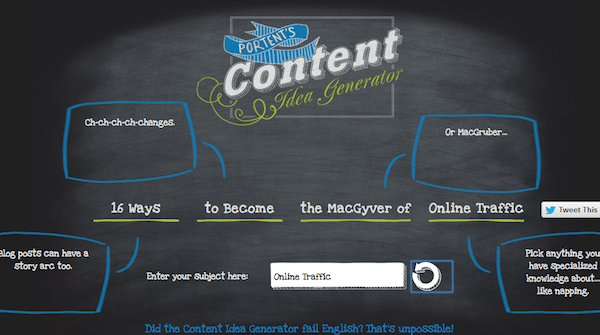
4. You’re Not Putting Keywords in Your Headlines
Your headline is the most important part of your post for getting search traffic.
When you Google something, the keyword that you search is always in the headline, usually in its entirety and near the front of the headline.
So, if you want to start ranking for specific keywords, they need to be in your headline and near the front.
5. Your Posts Aren’t Thorough
Remember, it’s Google’s job to give relevant, high-quality search results. Ideally, the best, most thorough web page for each keyword will always hold the top spot.
For example, if you wrote a 100-word post on the “how to get search engine traffic” while someone else wrote a 3,000-word post that covers every nook and cranny of the topic with authority, Google is going to find a way to put the 3,000-word post at the top and drop yours to the wayside.
Your goal with each and every blog post is to create the ultimate resource for that particular keyword. 2,000-words per blog post is a good rule of thumb.
6. You’re Not Creating Sharable Content
A study by Branded3 confirmed that Google’s search results are at least somewhat based on the number of Tweets.
In the study they found a direct correlation between number of tweets and search result rankings. URLs with more than 7,500 tweets, on average, held the 5th spot for their keyword.
This makes sense too. If people are sharing your blog post, that’s a good sign that it’s worth a bump up in the search results.
7. You’re Not Linking Externally and Internally
One way to create an ultimate resource for a particular keyword is to link to other resources within your blog post, both externally and internally.
This does three things:
- It makes your blog post more valuable.
- It makes other content on the subject easier for Google to find.
- I’ve found that one of the best ways to get backlinks is to start by linking to other bloggers.
8. You’re Not Using WordPress
One of the benefits of using WordPress is that it generates easy-to-index pages. If your website is easy to index, then Google will rank it higher.
WordPress is widely considered the best website building platform partly because that’s what all the top online resources are built with. And the people who use it recommend that other people use it.
The key here is to have a well-coded website and WordPress takes care of that for you.
9. You’re Not Optimizing Your Images
Optimizing your images will help your search engine rankings in two ways:
- You’ll likely get traffic through Google’s image search.
- It’s another way to tell Google what your primary keyword is.
Here are the only three ways to optimize your images:
- Save your images as [keyword-phrase.png] before you upload them to your site.
- Add alt text as [keyword phrase].
- Add title tag as [keyword phrase].
If you have any questions with optimizing your images, let me know and I’ll try to help you out.
The Last Word
Once you fall into the routine of conducting keyword research, choosing a keyword, and pumping out content it’s easy to put too much emphasis on writing for search engines.
Your writing becomes robotic. Just because someone can find it doesn’t mean that they’ll read it and love it.
The reason you need to go through these steps is because it’s the most efficient way to find out what people want to read and to serve it up on an easy-to-find platter.
Photo by: Neil Kremer
